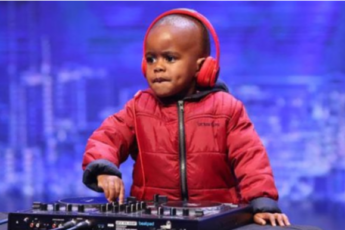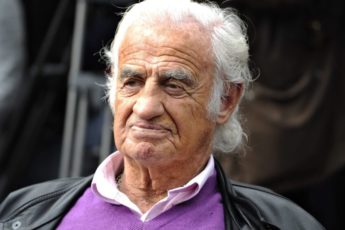“We were ecstatic. It was my son Isaac’s third birthday, and we were about to find out if he was going to have a baby sibling or sister! We had no idea the day would be anything but joyful as we entered the anatomy scan for our precious baby.
We were requested to return to the OB/office GYN since our technician was very silent. Something wasn’t quite right. Our baby’s ventricles were measuring with too much water, and we needed to see a specialist, we were told. We looked up hydrocephalus on the internet at home. It’s possible that everything would still be fine. Everything could still be fine with a shunt! Right?
We revealed to the world that our kid would be getting a baby sister later that evening. Then we waited two torturous weeks to see the perinatologist and learn more.

The specialist’s appointment was the worst day of my life. After a more in-depth ultrasound, it was discovered that the issue wasn’t merely enlarged ventricles. Early in pregnancy, our baby’s brain hadn’t fully developed. A number of components were missing. We talked to a genetic counselor about the potential of trisomy 13 or 18. An amniocentesis was performed on us. This was the start of a really trying period. I spent the entire day googling and crying for solutions to my questions. Simon, my spouse, spent his time avoiding thinking about and discussing what was going on.
After an MRI, I met with the experts at Children’s Mercy of Kansas City and received an official diagnosis. Our kid has holoprosencephaly or HPE for short. Only 3% of babies diagnosed with HPE live to see their first birthday. Only 1% of babies live to be six months old. In pregnancy, holoprosencephaly is a rather frequent birth abnormality. It’s only that most newborns are immune to it before they are born.
However, I recall one person in our Children’s Mercy meeting saying that he thought her chances were better. ‘She’s already come this far,’ says the narrator. We discussed how the changes in our girl’s brain would affect her health as we looked at projected images of her brain. Seizures, motor issues, eating difficulties, difficulty maintaining her body temperature, and diabetes insipidus are among her symptoms. A lengthy list of challenges that were difficult to absorb throughout the meeting.
I went to the hospital a lot during my pregnancy, planning to give birth at the children’s hospital so that I could be close to her if she needed any serious interventions after she was delivered. Weekly ultrasounds were performed on me, with photos sent home after each one. The staff made me feel close to my kid during my pregnancy because they understood it was the only time we’d get to spend with her.

I can’t express how difficult the pregnancy was. It was such a contrast to my son’s pregnancy. We requested that our church refrains from planning a baby shower. If my baby died, I didn’t want to have to return anything. I was really enraged.
Everyday interactions, such as strangers in the grocery store inquiring about my due date, were like ripping open a wound. My three-year-old and I tried to prepare him for the possibility that his baby sister would not be able to return home from the hospital. How could this kid, who was kicking so hard in my belly, not live?
As my due date approached, we discussed the possibility of holding a funeral. But how do you genuinely prepare for a child’s death? Instead, I opted to prepare for what life would be like with a disabled child. I read some other families’ blogs and found solace in the fact that they were simply going about their daily lives. These families were out and about, having fun, and going about their daily routines. I cried out to God in the shower, unable to pray and simply screaming out His name, hoping with all my heart to be able to have my baby regardless of the challenges she would face.
Simon and I couldn’t believe the serene presence that surrounded us as the due date arrived. This lengthy and tough pregnancy came to an end with an absolutely serene birth. With the birth of our daughter, Ivy Elizabeth, my concerns that had been plaguing me for months were temporarily put to rest. A plump 9lb. 3oz. physique with pink skin, a full head of dark hair, and a plump 9lb. 3oz. body.
Everything was okay. She was perfect. The hospital stay would have been uneventful if it weren’t for the sheer surprise of it all!


Ivy’s newborn days were so normal, so very much like her brother’s early months. She was such a wonderful baby and so beautiful. And even as challenges have arisen in her life, we have found that day by day we can handle them with help from family.


We wondered if she’d ever rollover. We rejoiced when she was two and began to crawl. I cried in frustration as my toddler cried at the park, wanting to do the things the other kids could do. We’ve hung on every new word she has spoken. I can’t tell you that I don’t have nights where I can’t sleep thinking about her future, but everything has been worth it.

Ivy is a complete delight; she is witty and mischievous. She screams at her brother, kisses us, and adores Mickey Mouse and Moana, as well as reading. Even with her differences, she is very much a typical four-year-old little girl.

She has been remarkably healthy, despite her holoprosencephaly. Ivy knows her colors, but she can’t stand by herself. She can count, but she can’t walk without a walker. She plays pretend, but her speech is delayed. She is frustrated by the things she can’t do, but she can do so much.


There is hope for families with a prenatal diagnosis. Even though the challenges, you live your life. You continue to do the things you did before you had this child, even as you go through periods of grief for the things that are different.
You do the doctor’s appointments. You go to the therapies. You find out more about insurance than you ever knew before. You handle your child needing surgeries. You change diapers past the point you thought you would. You load up the wheelchair. You delight in her laugh. You discover these things become a new normal. Your other children learn more compassion as they grow to understand how their sibling is different from their friends. You find people that love your child to teach her and care for her. And you find, bit by bit, that you can make it after all.”









